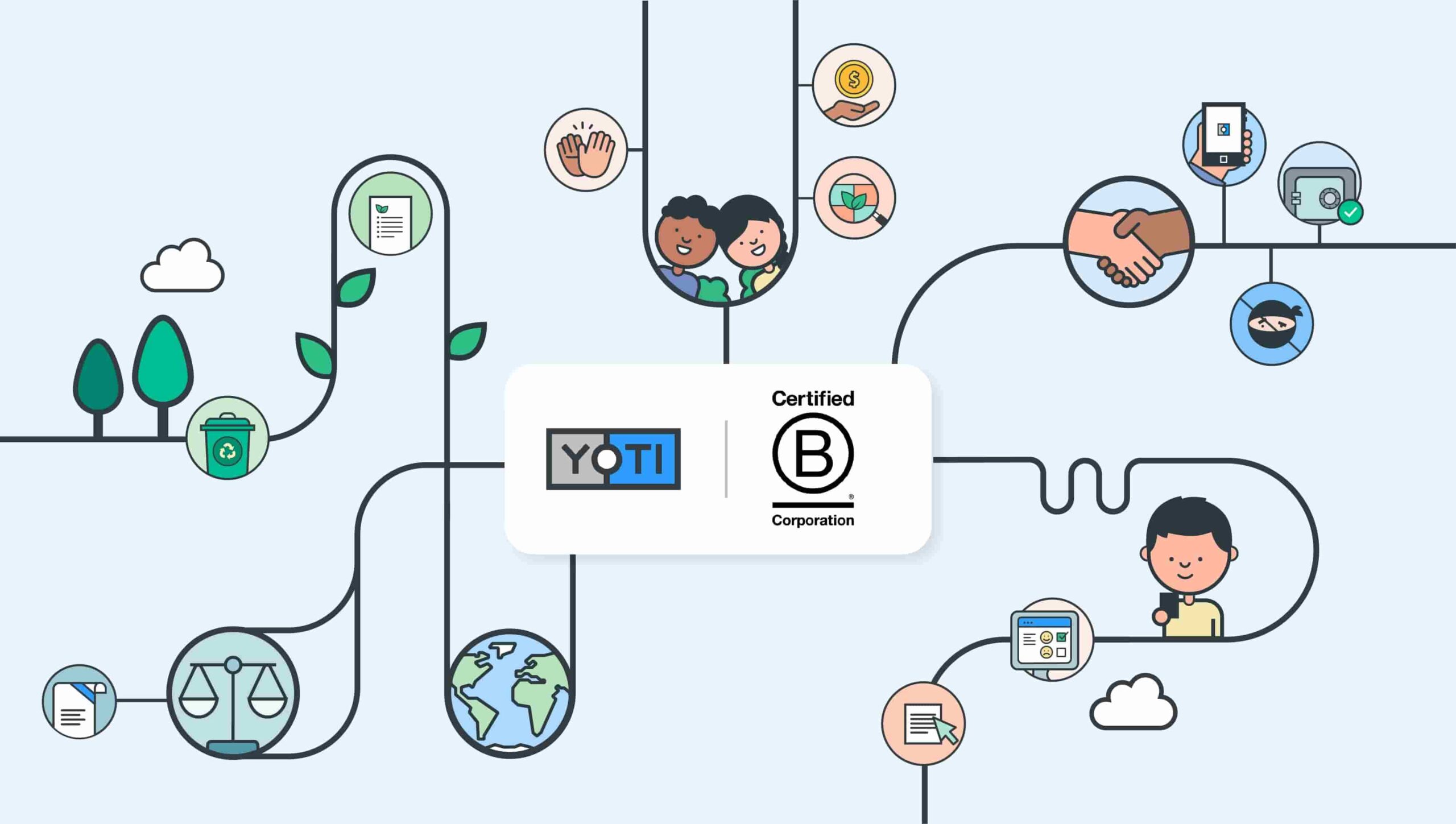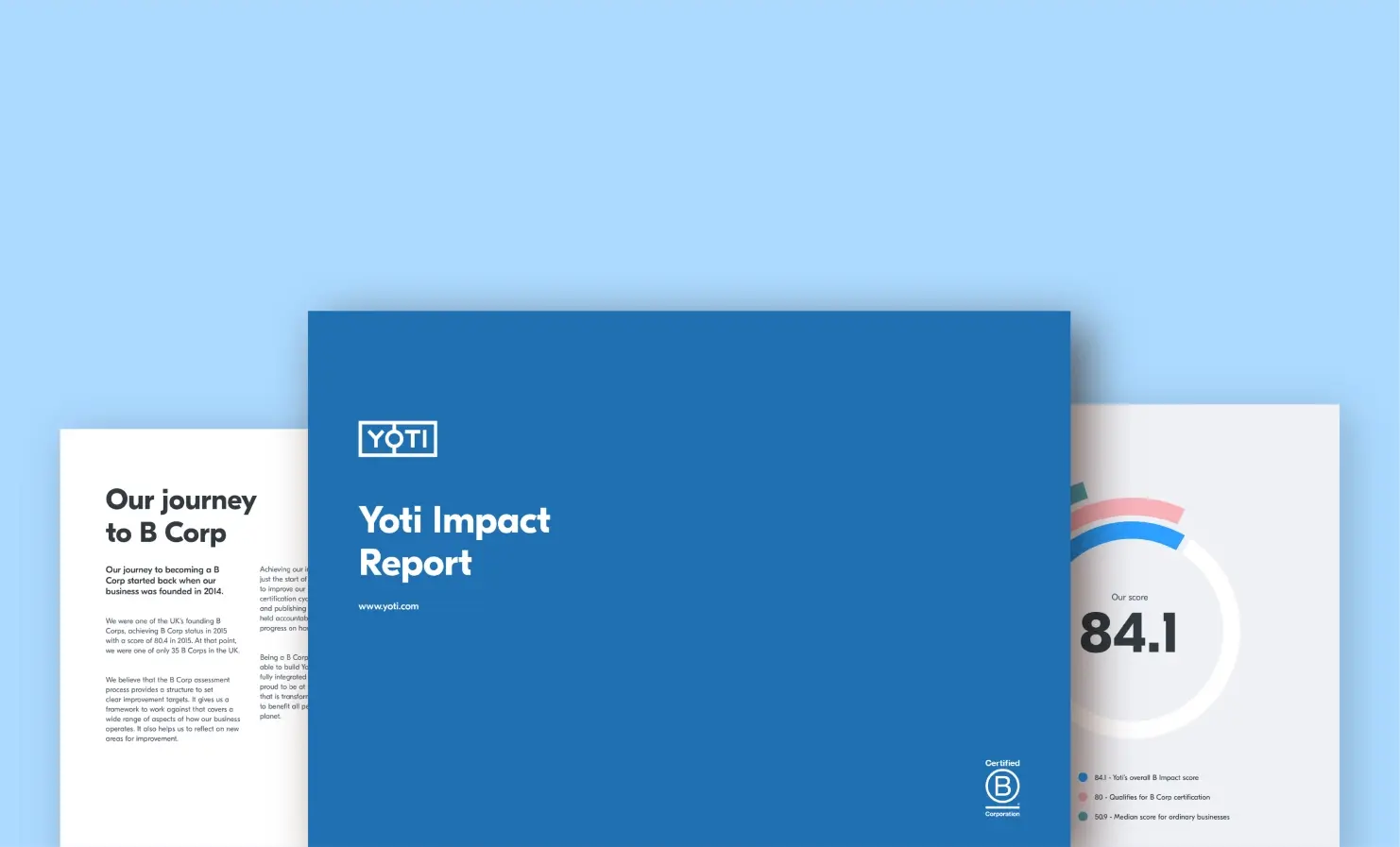Yoti blog
Stories and insights from the world of digital identity
How AI and machine learning can help build better AML programs
As financial institutions move towards FATF-recommended risk-based AML programs, artificial intelligence (AI) and machine learning can help them be more effective and efficient in the fight against financial crime. The global framework for fighting financial crime white paper by The Institute of International Finance and Deloitte LLP highlights that: There is growing consensus that the current global framework for fighting financial crime is not as effective as it could be and that more needs to be done at the international, regional and national levels to help identify and stem the flow of illicit finance –
Identity-driven eSignatures [product sheet]
Know exactly who’s signing your documents with legally-binding electronic signatures linked to a verified digital ID. Simply upload your documents, place the signature boxes and request recipients sign with the Yoti app. They’ll receive an email with the documents and a QR code to scan with their Yoti Digital ID. They consent to sharing their verified identity details in their app and you can achieve eSignatures and KYC in one simple swoop. Download your product sheet
Regulatory expectations are evolving: How robust is your AML program?
Managing financial crime is very complex and presents several challenges for financial institutions to develop robust anti-money laundering (AML) programs and meet compliance requirements. AML compliance officers understand the importance of keeping one step ahead of criminals trying to find weak points in their financial systems to exploit. Continuous discussions by industry leaders at the forefront of combating financial crimes agree that more needs to be done sooner to detect and prevent money launderers from misusing systems. Thought leader Kevin Buehler from McKinsey wisely points out that “the stakes in this fight have never been
A closer look at the ever-changing anti-money laundering landscape
In the fight against financial crime, the anti-money laundering landscape is ever-changing. The global battle against financial crime is a challenging one fought by governments, regulatory bodies, and industries. Every financial institution and organisation that provide financial services must better equip themselves against the growing threat of money laundering. Financial institutions are the most significantly impacted by money laundering and terrorism financing year on year. The United Nations Office on Drugs and Crime estimates that the amount of money laundered globally is between 2 – 5 per cent each year, which in USD is
Digital hiring vs in-person hiring: a post-pandemic conundrum
Lord Holmes, life peer in the House of Lords and dedicated advocate for the power of technology, talks about the change in right to work checks as set out by the Home Office. As a result of the coronavirus pandemic, digital hiring became more widely adopted following the temporary decision to allow digital right-to-work checks. The Home Office has since decided to revert back to in-person hiring, despite an overall sentiment from businesses that Digital ID checks are more secure and efficient. *** Building back better with digital hiring On the Home Office’s step by
Romance fraud: how to tell if you're being scammed with Yoti peer-to-peer checks
In 2020, there were over 270 million online dating users and 2.89 billion users of social media. People have been seeking virtual social and romantic relationships more than ever before, with dating sites seeing huge increases in platform usage following the enforcement of national lockdowns. But if you have ever made one of these accounts, you’ll know just how easy it is to make a profile using a false identity. This practice has given rise to a phenomenon called romance fraud, which UK Finance reported to have cost its victims a total of £18.5 million.
Browse by category
Essential reading
Get up to speed on what kind of company we are


![Identity-driven eSignatures [product sheet] Someone using Yoti eSignatures on a mobile](https://www.yoti.com/wp-content/uploads/Sign_LP_hero_G2_leader_mobile.jpg)









